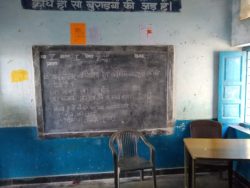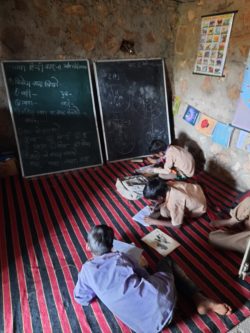Home
Our Research

The RAISE research project aims to advance understanding of accountability for improved learning outcomes by conceptualising accountability as systemic and relational. It examines how norms for educational provision as set out in India’s Right to Education (RtE) Act are being reshaped as they interact with competing ideas and conditions across and within four scales of the education system: families, schools, communities and the educational bureaucracy. The research seeks to analyse how actors in each scale (e.g. parents, caste leaders, teachers, policy-administrators) conceptualise relations of accountability and translate these into tangible actions, how these actions converge or diverge within and across the scales, and how the specific conjunctures of these relations impact on learning.
The RAISE research adopts a sequential mixed-methods approach, beginning with a qualitative investigation and then using a quantitative survey to validate and extend the qualitative analysis. It focuses on two case study sites, one in Bihar and one in Rajasthan.
The project is led by Professor Caroline Dyer (Professor of Education and International Development, University of Leeds) in collaboration with researchers from the University of Bristol, Azim Premji University and the Vidya Bhawan Society in India.
The RAISE research project is funded as part of the The Raising Learning Outcomes in Education Systems Research Programme (RLO) by the Economic and Social Research Council (ESRC) and the UK's Foreign, Commonwealth and Development Office (FCDO, formerly DFID) which commissioned world-class and cutting-edge social science research to address key questions on learning outcomes within education systems in developing countries.
Our Approach

The RAISE project is about characterising accountability relations within and across family, school, community and bureaucracy around the themes of access, participation and monitoring of elementary schooling.
Access is a process by which all students and social groups utilise the school without any hindrance or barrier. It refers to ways in which educational institutions ensure that students have equal and equitable opportunities to take full advantage of their education. Participation is conditional on minimal access and can be understood as what makes for high (or low) voice and examining the agency of actors for engaging with the system. A student's classroom participation is part of this, but the idea extends to how a school makes space for students who have extra-curricular interests and students’ participation in such spaces. Monitoring can be understood as having information about the role of other actors, surveillance and taking (or not taking) action for course correction. It includes both the formal (top-down) power hierarchy and the informal – so it is inclusive of everyday practices in the family that engage with a student’s ability to participate in learning and schooling. Monitoring overarches the themes of access and participation.
Studying access, participation and monitoring individually and together helps us understand the ecosystem of schooling and relational accountability between different stakeholders and also to identify the gaps, challenges and policy implications.
There are two study sites – Udaipur district of Rajasthan state and Patna district of Bihar state in India. 12 schools for the qualitative phase and 50 schools for the quantitative phase are selected from each location. These schools include government, private, and NGO-run bridge schools, and religious schools such as Madrasas.
